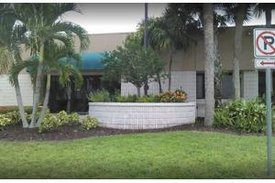
Discovery Senior Living
3461 Bonita Bay Blvd #100 , Bonita Springs, FL 34134
Call 1-855-287-5093 for details
The average cost of assisted living in the city is $4,000 a month. This guide is a starting point covering the cost of assisted living care in the city, as well as financing options to pay for it. You’ll find in-depth information on 20 Assisted Living Communities in Cape Coral and several in surrounding areas. The Cost of Senior Care in Cape Coral, FL

3461 Bonita Bay Blvd #100 , Bonita Springs, FL 34134
Call 1-855-287-5093 for details

7173 Cypress Dr, Fort Myers, FL 33907
Call 1-855-287-5093 for details
"Welcome to Cypress Community Care Center! Fort Myers Rehabilitation and Nursing Center is a 120-bed facility located in Fort Myers, FL, in c..."
READ MORE

711 Crestline Ave S, Lehigh Acres, FL 33974
Call 1-855-287-5093 for details

"Heron Pond Apartments is located in Lehigh Acres, FL. Seniors can experience quiet living far from fast-paced city life without losing acces..."
READ MORE
15 Madre de Dios St, Punta Gorda, FL 33983
Call 1-855-287-5093 for details
By clicking "Get Costs" I am providing express written consent to receive calls including automated/pre-recorded calls and automated texts for which I may incur a cost, as well as emails from Caring and its partners. I understand I am not obligated to provide this consent to utilize Caring’s service(s). I acknowledge I was able to review the Agreement to be Contacted, Terms of Use, and Privacy Policy.


3166 Marine Ter, Punta Gorda, FL 33983
Call 1-855-287-5093 for details

2616 22ND ST W, Lehigh Acres, FL 33971
Call 1-855-287-5093 for details

CK
3
|
August 15, 2018
Brookdale Cape Coral was a much older facility and not very clean. The staff was very good. There were studios and apartments that were much smaller, older, and needed updating. They had a courtyard that also needed some upkeep. Their dining area was one big table. There were only 13 residents there, so it's a very small facility.
Linda
5
|
June 29, 2018
The Windsor of Cape Coral is very clean, and everybody has their own nice little apartment with two rooms and a bathroom and a little kitchenette. My mom said the food was OK. They have bingo, parties, and card games. They provide transportation to doctors' appointments, but you can use their doctors, so that's easier. The staff is very nice and caring.
EH
5
|
January 31, 2018
I like The Windsor. I like the layout. The best part about their rooms is that there are two rooms, i.e., the bedroom and the living room. They have very nice activities. There was only one person that I met and that person gave me the tour. The staff members were very polite, very informative, and very nice; however, I cannot afford it.
Catherine
5
|
January 17, 2018
The Windsor of Cape Coral was really nice, clean, and updated, but it was a little pricey. The staff was great and everybody was friendly. The food looked good and they gave us some cookies which tasted really good.
Visitor
3
|
June 28, 2016
Brookdale Cape Coral seemed to be not what they intended it to be. I hardly saw any of the residents, and the staff hardly saw any of them either. It was a new facility and they had a calendar of events that they were supposed to do, but they didn't seem to be following any type of activities with the residents there. A couple of weeks later, we saw in the news that they had a bedbug infestation there. They made a lot of excuses for not having activities.
Genworth’s 2018 Cost of Care study shows that the average monthly price of assisted living in Cape Coral is $4,000, which is the same as the national average but $500 above the state average.
To the north, prices are lower in Punta Gorda ($3,400) and the North Port area ($3,874). Prices are higher south of Cape Coral in Naples ($5,448), the most expensive city in the state. Along the Atlantic coast, costs are $3,620 in Port St. Lucie and $3,350 in Miami.
Cape Coral
$4,000
National Average
$4,000
State Average
$3,500
Punta Gorda
$3,400
Naples
$5,448
Miami
$3,350
Sebring
$3,038
Tampa
$3,250
Jacksonville
$4,425
Senior care costs are based on a number of factors, such as the location, the staff/senior ratio and most importantly, the level of care needed. In Cape Coral, a semiprivate room in a nursing facility costs more than twice the amount of assisted living because nursing facilities provide 24/7 medical care. By comparison, assisted living includes room and board, however, personal care is not included in the monthly price. Community-based care services received by a homemaker costs $3,909 per month, while a home health aide costs $4,385 per month based on 44 hours of weekly in-home service. These care costs are in addition to regular living expenses, such as rent or mortgage payments, groceries, utilities and home upkeep, which can make the true cost of staying at home significantly higher than assisted living.
Assisted Living
$4,000
Homemaker Services
$3,909
Home Health Aide
$4,385
Adult Day Health Services
$1,571
Nursing Home Care
$8,304
Medicaid is the federally mandated, government-funded health program that gives low-income children, adults with disabilities and seniors access to essential health services. Each state administers its own Medicaid program, and by law, all Medicaid plans must provide these mandatory benefits:
Optional State Supplementation
The Florida Department of Children and Families administers a state-funded Supplemental Security Income top-up program that provides financial assistance to low-income seniors in assisted living facilities
The Optional State Supplementation program helps eligible seniors pay for the room-and-board portion of their assisted living costs.
To qualify for OSS benefits, seniors must collect SSI and be unable to live independently due to illness, injury or age-related loss of function. If approved, seniors may receive a maximum of $78.40 per month ($156.80 per month for couples) in addition to their regular SSI benefit.
For more information, contact ACCESS Florida at (866) 762-2237 or the Social Security Administration at (800) 772-1213.
Veterans Aid and Attendance Benefits and Housebound Allowance
The VA Aid and Attendance Benefits and Housebound Allowance are two enhanced monthly pension programs for eligible veterans and survivors.
Applicants must be eligible for the regular VA pension and have a permanent disability or life-limiting condition. Claimants who meet the medical criteria but are ineligible for the basic pension due to excess income may also qualify as these programs provide increased pension benefits.
Under Aid and Attendance, the maximum annual pension is $22,577 to single veterans and $26,766 for veterans with one dependent. Single survivors may receive a maximum annual pension of $14,509 and up to $17,309 with one dependent.
Applicants may be eligible for Aid and Attendance if they are:
Cape Coral’s Parks and Recreation Department operates two community centers for seniors aged 50 and older. Members can enjoy a wide variety of classes, games and drop-in programs, such as bingo, quilting, line dancing and escorted day trips.
Tony Rotino Center
5817 Driftwood Pkwy., Cape Coral, FL 33904
(239) 574-0807
Lake Kennedy Center
400 Santa Barbara Blvd., Cape Coral, FL 33915
(239) 574-0575
Seniors who need low-cost, door-to-door transportation to appointments and errands can register for the Cape Coral Mini-Bus program. The Friendship Center Dining Program provides seniors aged 60 and older with hot, nutritious lunches in a communal setting Monday-Friday. To register for the Mini-Bus or Dining Program, contact program staff at the Lake Kennedy Center or call (239) 574-0573.
Veterans, survivors and dependents who need information about VA benefits or need help completing claims applications and appeals can contact Lee County Veterans Services.
Primary, mental health, women’s health and a number of specialty medical services are available at the Lee County VA Clinic, part of the Bay Pines VA Healthcare System.
Lee County Veterans Services
2440 Thompson St., Fr. Myers, FL 33901
(239) 533-8381
Lee County VA Clinic
2489 Diplomat Pkwy. E., Cape Coral, FL 33909-5422
(239) 652-1800
Go a bit further out to explore pricing and amenities.
$4,861
$3,795
$5,205
$5,030
Senior Homes has an extensive directory of senior living options, with care and living providers across the United States.
By clicking "Get Costs" I am providing express written consent to receive calls including automated/pre-recorded calls and automated texts for which I may incur a cost, as well as emails from Caring and its partners. I understand I am not obligated to provide this consent to utilize Caring’s service(s). I acknowledge I was able to review the Agreement to be Contacted, Terms of Use, and Privacy Policy.